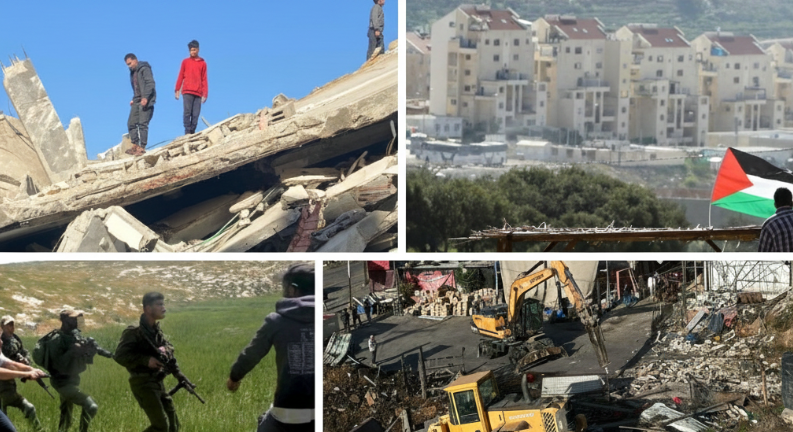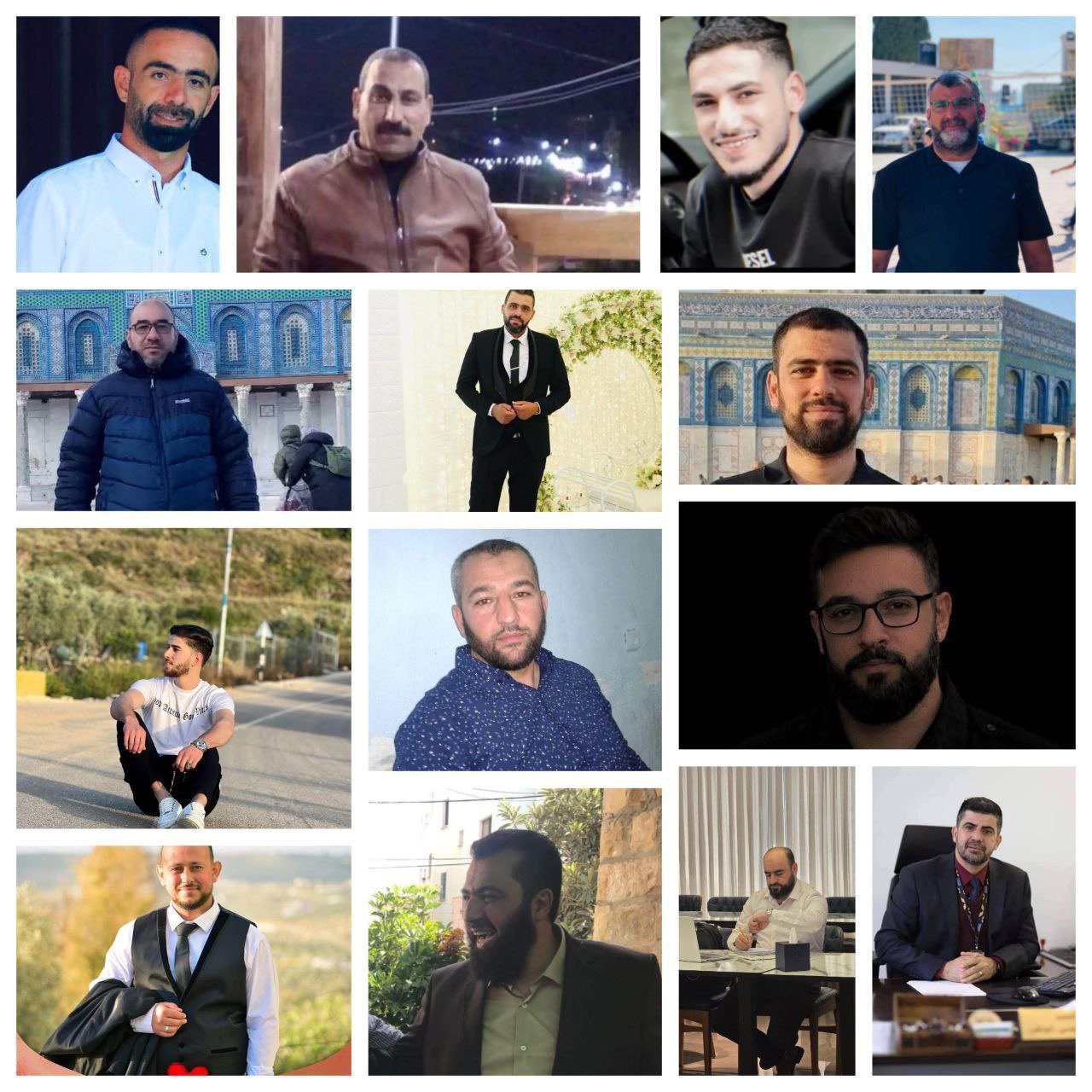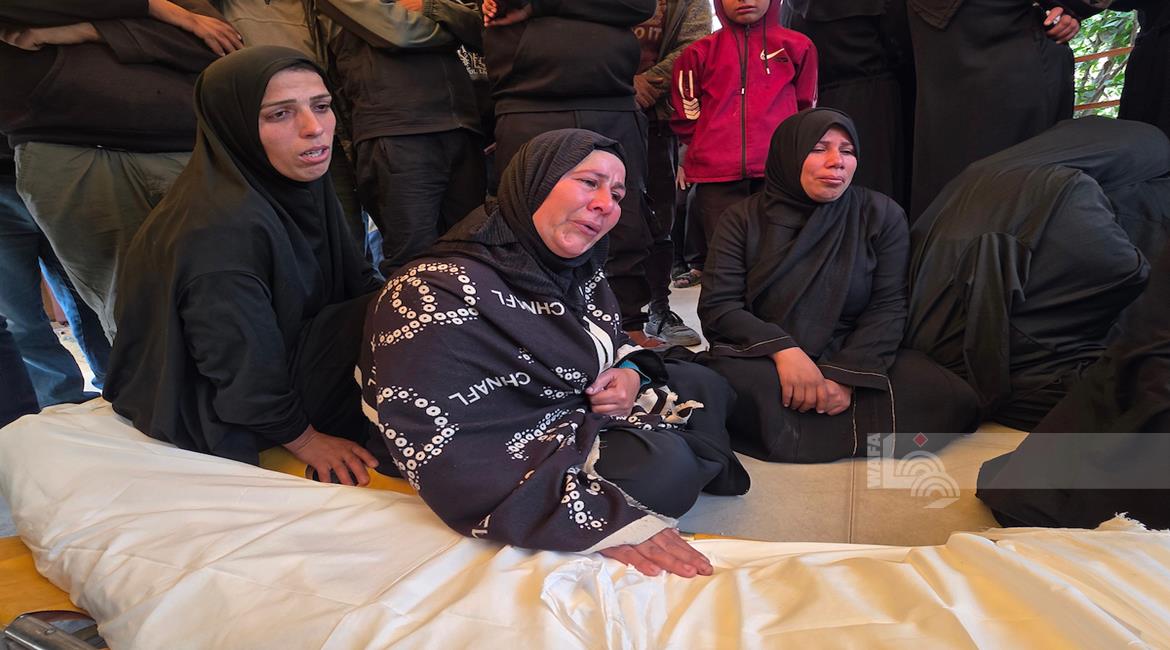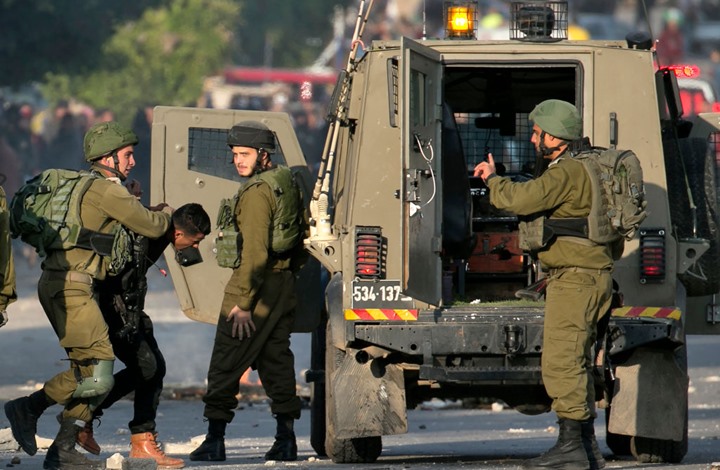LONDON, Friday, November 10, 2023 (WAFA) – Israeli occupation authorities have dramatically increased their use of administrative detention, a form of arbitrary detention, of Palestinians across the occupied West Bank; extended emergency measures that facilitate inhuman and degrading treatment of prisoners; and failed to investigate incidents of torture and death in custody over the past four weeks, Amnesty International said in a new report.
Since October 7, Israeli occupation forces have detained more than 2,200 Palestinian men and women, according to the Palestinian Prisoners’ Society. According to Israeli human rights organization HaMoked, between 1 October and 1 November, the total number of Palestinians held in administrative detention, without charge or trial, rose from 1,319 to 2,070.
Testimony from released detainees and human rights lawyers, as well as video footage and images illustrate some of the forms of torture and other ill-treatment prisoners have been subjected to by Israeli forces over the past four weeks. These include severe beatings and humiliation of detainees, including by forcing them to keep their heads down, to kneel on the floor during inmate count, and to sing Israeli songs.
"Over the last month we have witnessed a significant spike in Israel’s use of administrative detention – detention without charge or trial that can be renewed indefinitely – which was already at a 20-year high before the latest escalation in hostilities on 7 October," said Heba Morayef, Regional Director for the Middle East and North Africa.
Amnesty International researchers interviewed 12 people, including six released detainees, three relatives of detainees, and three lawyers working on recent arrests. Researchers also reviewed testimonies shared by other released detainees and analysed video footage and images.
In one image analysed by Amnesty International’s Crisis Evidence Lab, three Palestinian men, blindfolded and stripped of their clothes can be seen beside a soldier, wearing a green olive uniform like those worn by the Israeli ground forces. A Haaretz investigation published on 19 October found that the image was taken in Wadi al-Seeq, a village East of Ramallah, on 12 October. One of the three victims depicted in the photograph told Amnesty International that he had initially been held and beaten by settlers but two hours later an Israeli military jeep arrived:
“One of the Israeli officers who came, approached me and kicked me on my left side, then jumped on my head with his two legs pushing my face further into the dirt and then continued kicking me as I was head down, into the dirt, with my hands tied behind my back. He then got a knife and tore all of my clothes off except for my underwear and used part of my torn clothes to blindfold me. The beating to the rest of my body did not stop, at one point he started jumping on my back – three or four times – while yelling ‘die, die you trash’ … in the end before this finally stopped, another officer urinated on my face and body while also yelling at us ‘to die’.”
Amnesty International said it also spoke to two women who were arbitrarily detained for 14 hours at a police station in occupied East Jerusalem where they were humiliated, strip-searched, and mocked. They were later released without charges.
In a video first published on social media on 31 October and analysed by Amnesty International’s Crisis Evidence Lab, nine detained men, who based on identifiable accents are Palestinian, can be seen, some stripped naked and others half-naked, blindfolded and handcuffed, surrounded by at least 12 soldiers wearing olive green uniforms and equipped with either M4A1 or Tavor X95 assault rifles. Both uniforms and weapons are standard issue equipment of the Israeli ground forces.
One of the soldiers is seen kicking one of the detainees in the head. Another video analyzed by Amnesty’s Crisis Evidence Lab uploaded to platform X (formerly Twitter) on 31 October shows a blindfolded person, likely Palestinian, along with an Israeli army sergeant mocking the prisoner and dancing around him.
Since 7 October, according to the Israeli authorities, four Palestinian detainees have died in Israeli detention facilities in circumstances that have not yet been impartially investigated. Two of the four are workers from the occupied Gaza Strip, held incommunicado by the Israeli army in military detention centres, whose deaths were only made public by the army after an inquiry by Israeli newspaper Haaretz.
Under international law, torture and other ill-treatment committed against protected persons in an occupied territory is a war crime. The detention of protected persons outside the occupied territory, as is the case of Palestinian prisoners from the OPT held in Israel, is also a violation of international humanitarian law as it amounts to forcible transfer.
Israeli occupation authorities have also subjected thousands of Palestinians from Gaza with permits to enter Israel, mostly workers, to a third form of arbitrary detention where they were held incommunicado for at least three weeks on two military detention bases in Israel and the West Bank. Many were released, however, there is no transparency from Israeli authorities around how many are still detained.
“Israeli authorities must immediately reverse the inhumane emergency measures imposed on Palestinian prisoners and grant them immediate access to their lawyers and families. All Palestinians arbitrarily detained must be released. We urge Israel to allow the International Committee of the Red Cross to conduct urgent visits to prisons and detention facilities and to monitor conditions for Palestinian detainees,” said Heba Morayef.
“Israeli judicial authorities must also impartially and independently investigate complaints of torture and other ill-treatment and prosecute in fair trials those responsible for ordering and carrying out torture.”
M.N












